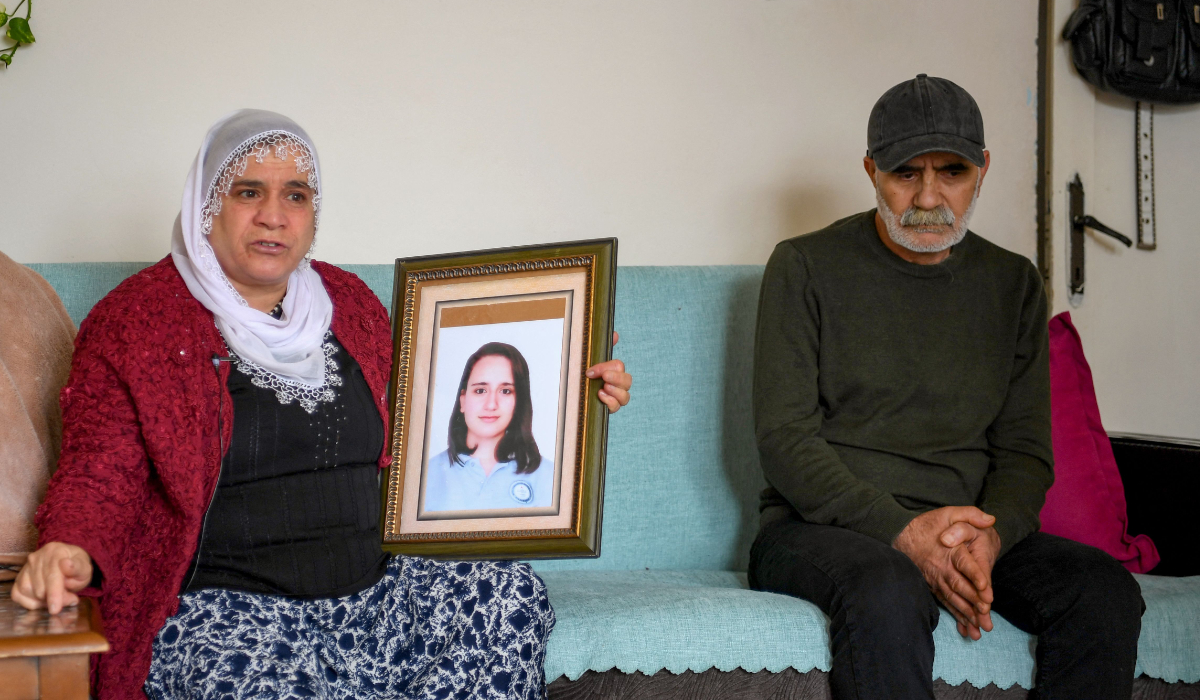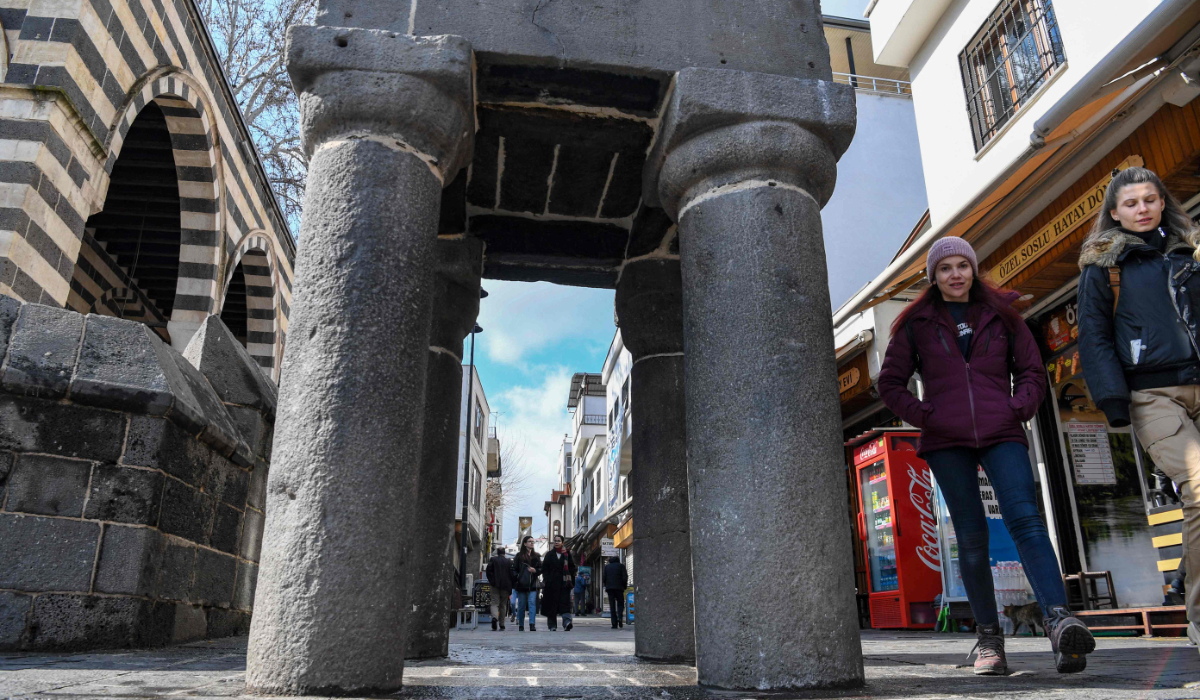DOHA: International mediators held a new round of talks Thursday aimed at halting the Israel-Hamas war and securing the release of scores of hostages, with a potential deal seen as the best hope of heading off an even larger regional conflict.
The United States, Qatar and Egypt met with an Israeli delegation in Qatar as the Palestinian death toll from the more than 10-month-old war climbed past 40,000, according to Gaza health authorities. Hamas, which didn’t participate directly, accuses Israel of adding new demands to a previous proposal that had US and international support and to which Hamas had agreed in principle.
White House National Security spokesperson John Kirby called the talks an important step and said they’re expected to run into Friday. He said a lot of work remains given the complexity of the agreement and that negotiators were focusing on its implementation.
A ceasefire in Gaza would likely calm tensions across the region. Diplomats hope it would persuade Iran and Lebanon’s Hezbollah to hold off on retaliating for the killing of a top Hezbollah commander in an Israeli airstrike in Beirut and of Hamas’ top political leader in an explosion in Tehran.
Kirby said that Iran has made preparations and could attack soon with little to no warning and that its rhetoric should be taken seriously.
The mediators have spent months trying to hammer out a three-phase plan in which Hamas would release scores of hostages captured in the Oct. 7 attack that triggered the war in exchange for a lasting ceasefire, the withdrawal of Israeli forces from Gaza and the release of Palestinians imprisoned by Israel.
Both sides have agreed in principle to the plan, which President Joe Biden announced on May 31. But Hamas has proposed “amendments” and Israel has suggested “clarifications,” leading each side to accuse the other of making new demands it can’t accept.
Gaps remain even after months of talks
Hamas has rejected Israel’s latest demands, which include a lasting military presence along the border with Egypt and a line bisecting Gaza where it would search Palestinians returning to their homes to root out militants. Hamas spokesperson Osama Hamdan told The Associated Press that the group is only interested in discussing the implementation of Biden’s proposal and not in further negotiations over its content.
A Palestinian official who closely follows the negotiations said Hamas wouldn’t take part in Thursday’s talks, but that its senior officials, who reside in Qatar, were ready to discuss any proposals from the mediators, as they have in past rounds.
Israeli Prime Minister Benjamin Netanyahu denies that Israel has made new demands, but he has also repeatedly raised questions over whether the ceasefire would last, saying Israel remains committed to “total victory” against Hamas and the release of all the hostages.
The most intractable dispute has been over the transition from the first phase of the ceasefire — when women, children and other vulnerable hostages would be released — and the second, when captive Israeli soldiers would be freed and a permanent ceasefire would take hold.
Hamas is concerned that Israel will resume the war after the first batch of hostages is released. Israel worries that Hamas will drag out the talks on releasing the remaining hostages indefinitely. Hamdan provided documents showing Hamas had agreed to a US bridging proposal under which talks on the transition would begin by the 16th day of the first phase and conclude by the fifth week.
More recently, Hamas has objected to what it says are new Israeli demands to maintain a presence along the Gaza-Egypt border and a road dividing northern and southern Gaza. Israel denies these are new demands, saying it needs a presence along the border to prevent weapons smuggling and that it must search Palestinians returning to northern Gaza to ensure they aren’t armed.
The demands were only made public recently. Hamas has demanded a full Israeli military withdrawal, which was also part of all previous versions of the ceasefire proposal, according to documents shared with the AP that were verified by officials involved in the negotiations.
On Thursday, US State Department spokesperson Vedant Patel said that the broader framework of the deal laid out by Biden in May has generally been accepted and that the negotiation was a process, which was expected to continue.
‘People have no breath left in them’
The war began when Hamas-led militants stormed across the heavily guarded border on Oct. 7 in an attack that shocked Israel’s vaunted security and intelligence services. The fighters rampaged through farming communities and army bases, killing around 1,200 people, mostly civilians.
They abducted an additional 250 people. More than 100 were released during a weeklong ceasefire in November, and around 110 are believed to still be inside Gaza, though Israeli authorities believe around a third of them died on Oct. 7 or in captivity. Seven were rescued in military operations.
Israel’s retaliatory offensive has killed 40,005 Palestinians, Gaza’s Health Ministry said Thursday, without saying how many were militants. The offensive has left a swath of destruction across the territory and driven the vast majority of Gaza’s 2.3 million people from their homes, often multiple times.
“Oh Lord, we hope they reach an agreement and the war ends, because the population has been annihilated completely,” Abu Nidal Eweini told The Associated Press in the central Gaza city of Deir Al-Balah. “People have no breath left in them anymore. People are tired.”
Successive evacuation orders and military operations have driven hundreds of thousands of people into a so-called humanitarian zone along the coast where they live in crowded tent camps with few services. Aid groups have struggled to deliver food and supplies, prompting warnings of famine.
Hamas has suffered major losses, but its fighters have repeatedly managed to regroup, even in heavily destroyed areas where Israeli forces had previously operated.
Israel’s military spokesperson, Rear Adm. Daniel Hagari, said Thursday that the army had killed more than 17,000 Hamas militants in Gaza since the start of the war, without providing evidence.
Hezbollah, meanwhile, has traded fire with Israel along the border in what the Lebanese militant group says is a support front for its ally, Hamas. Other Iran-backed groups across the region have attacked Israeli, American and international targets, drawing retaliation.
Iran and Israel traded fire directly for the first time in April, after Iran retaliated for an apparent Israeli strike on its embassy compound in Syria that killed two Iranian generals. Many fear a repeat after the killing of Hamas leader Ismail Haniyeh, who was visiting Iran for the inauguration of its new president. The explosion was widely blamed on Israel. Israel hasn’t said whether it was involved.
Hezbollah has vowed to avenge the killing of its commander, Fouad Shukur, raising fears of an even more devastating sequel to the 2006 war between Israel and the militant group.
Still, Iran and Hezbollah say they don’t want a full-blown war, and a ceasefire in Gaza could provide an off-ramp after days of escalating threats and a major military buildup across the region.
While mediation to end the war is ongoing, violence continued in the occupied West Bank on Thursday, when one Palestinian was shot dead and another was critically injured by Israeli settlers, according to Palestinian health officials. Israeli and Palestinian media said that masked settlers stormed the village of Jit in the northern West Bank, setting homes and cars on fire.
The incident was the latest in a series of settler attacks since the outbreak of the war. More than 633 Palestinians have been killed by Israeli fire in the West Bank, most by Israeli raids into Palestinian cities and towns.
In a rare statement Thursday night, Netanyahu condemned the attack, saying it was the responsibility of the army to secure the country, and that those responsible for the attack would be apprehended and prosecuted.
Israel’s military said it has apprehended a civilian who took part in the violence and has opened an investigation.
Mediators hold new Gaza ceasefire talks hoping to head off wider war
https://arab.news/gcjht
Mediators hold new Gaza ceasefire talks hoping to head off wider war

- Spy chiefs in Doha for fresh Gaza talks
- Gaza agreement seen as key to avoiding broader war































